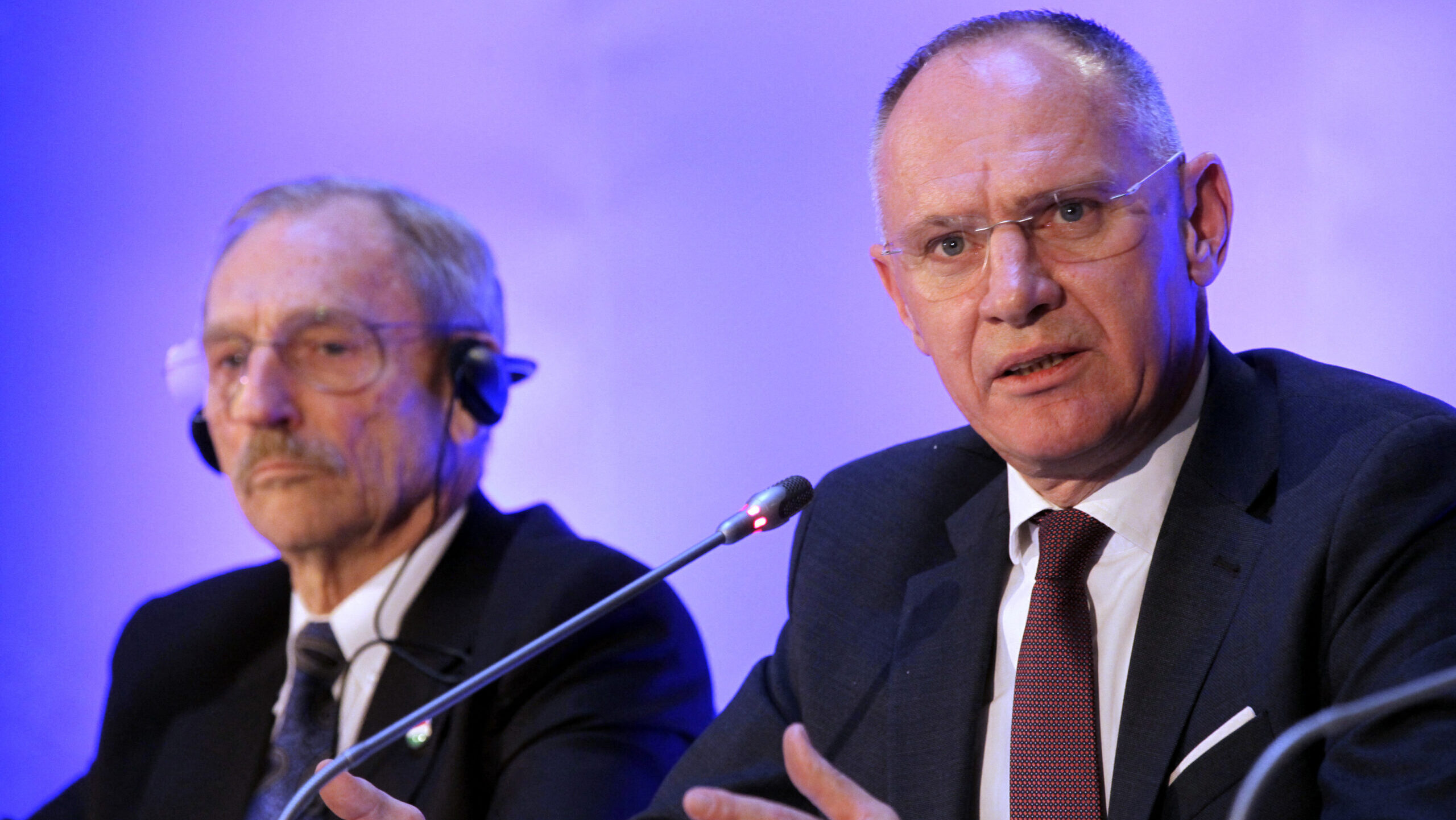Austria lifted its long-standing veto on Bulgaria and Romania’s accession to the Schengen area in Budapest on Friday, paving the way for both countries to become full members by 2025. ‘The interior ministers have reached an agreement, and we will put this on the agenda of the 12 December EU summit in Brussels, so that it can come into effect with 1 January and Bulgaria and Romania can finally become full members of the Schengen Area,’ Hungarian prime minister Viktor Orbán emphasized.
Zoltan Kovacs on X (formerly Twitter): “🇧🇬🇷🇴 BREAKING! @PM_ViktorOrban: The interior ministers have come to an agreement, and we will put it on the agenda of the December 12 EU summit in Brussels, so that it can come into effect with January 1 and Bulgaria and Romania can finally become full members of the Schengen… pic.twitter.com/xH8ermmOOa / X”
🇧🇬🇷🇴 BREAKING! @PM_ViktorOrban: The interior ministers have come to an agreement, and we will put it on the agenda of the December 12 EU summit in Brussels, so that it can come into effect with January 1 and Bulgaria and Romania can finally become full members of the Schengen… pic.twitter.com/xH8ermmOOa
The news was also welcomed by European Commission President Ursula von der Leyen, who stated in a post on X: ‘Bulgaria and Romania belong fully to the Schengen area…Let 2025 see Schengen become stronger.’ As von der Leyen noted, it is now up to the Council of the European Union to formalize the decision following the informal agreement reached in the Hungarian capital.
Ursula von der Leyen on X (formerly Twitter): “Bulgaria and Romania belong fully to the Schengen area. Removing internal controls at land borders is the last hurdle. I welcome the positive outcome of informal discussions in Budapest today. @EUCouncil formal decision is next. Let 2025 see Schengen become stronger. pic.twitter.com/zHJrg9HzFw / X”
Bulgaria and Romania belong fully to the Schengen area. Removing internal controls at land borders is the last hurdle. I welcome the positive outcome of informal discussions in Budapest today. @EUCouncil formal decision is next. Let 2025 see Schengen become stronger. pic.twitter.com/zHJrg9HzFw
The Austrian, Romanian, and Bulgarian interior ministers convened in Budapest on Friday for an informal meeting organized by the Hungarian EU Presidency to discuss the Schengen integration of Romania and Bulgaria, as well as the coordination of migration policies. Ahead of the meeting, Austria’s Interior Minister Gerhard Karner stated: ‘We see that these efforts are paying off, and we want to continue on this path and adopt a new package.’
In recent days the issue of Romania and Bulgaria’s Schengen accession has been a key topic in discussions between Romanian Prime Minister Marcel Ciolacu and Austrian Chancellor Karl Nehammer, Romanian Interior Minister Cătălin Predoiu and his Hungarian counterpart Sándor Pintér, as well as during a video conference between Bulgarian Interior Minister Atanas Ilkov and Cătălin Predoiu.
European Commissioner for Home Affairs Ylva Johansson recently expressed optimism that the full integration of Romania and Bulgaria into the EU’s borderless Schengen area will be finalized by the end of this year. She stated: ‘Romania and Bulgaria are ready, the Schengen area is ready, so I can’t see any obstacles. It’s time to lift internal border controls now.’ Johansson added that she foresees no barriers to completing the process by the end of 2024.
Romania and Bulgaria became members of the Schengen Area by air and sea on March 31, 2024. However, border controls continue to remain effective. According to the compromise solution agreed in December 2023, passengers from Romania and Bulgaria would be exempted from passport controls at European airports, contingent on the two countries enhancing their border security measures. Austria has also conditioned its support on the European Commission tripling the funding for the European Border and Coast Guard Agency (Frontex) operations in Bulgaria.
The Honest Broker
Hungary has consistently advocated for the expansion of the Schengen area. The broadening of the Schengen zone, much like the enlargement of the European Union, is envisioned to fortify the involved parties, fostering increased integration and interconnectedness to address shared challenges more effectively. Hungarian Foreign Minister Péter Szijjártó emphasized the significance of Romania joining the Schengen Area as a clear national interest for Hungary during his visit to Bucharest last November.
It was no secret that Budapest aimed to broker an agreement during the Hungarian EU Presidency, and it succeeded. This achievement adds to the list of successes under Hungary’s much-criticized presidency, which also includes the opening of Albania’s EU accession negotiations and the highly praised organization and outcomes of the Budapest summits in early November, notably the adoption of the Budapest Declaration.
‘This achievement adds to the list of successes under Hungary’s much-criticized presidency’
The enlargement of the Schengen borders will also enhance efforts to combat illegal migration and strengthen the protection of external borders, making Friday’s decision a positive outcome for Hungary in this regard as well.
The Schengen Convention, integral to the first and third pillars of the European Union, fundamentally abolishes internal border controls and establishes common external border controls. The Treaty, initially formed in 1985 among the five members of the European Economic Community, the precursor to the EU, came into effect a decade later with the accession of Spain and Portugal. It was subsequently incorporated into the EU framework in 1997. Currently comprising 27 members, Hungary joined the free movement area in 2007, and the list of participating countries has expanded at the end of 2022, with Croatia being the latest addition.
Related articles:








